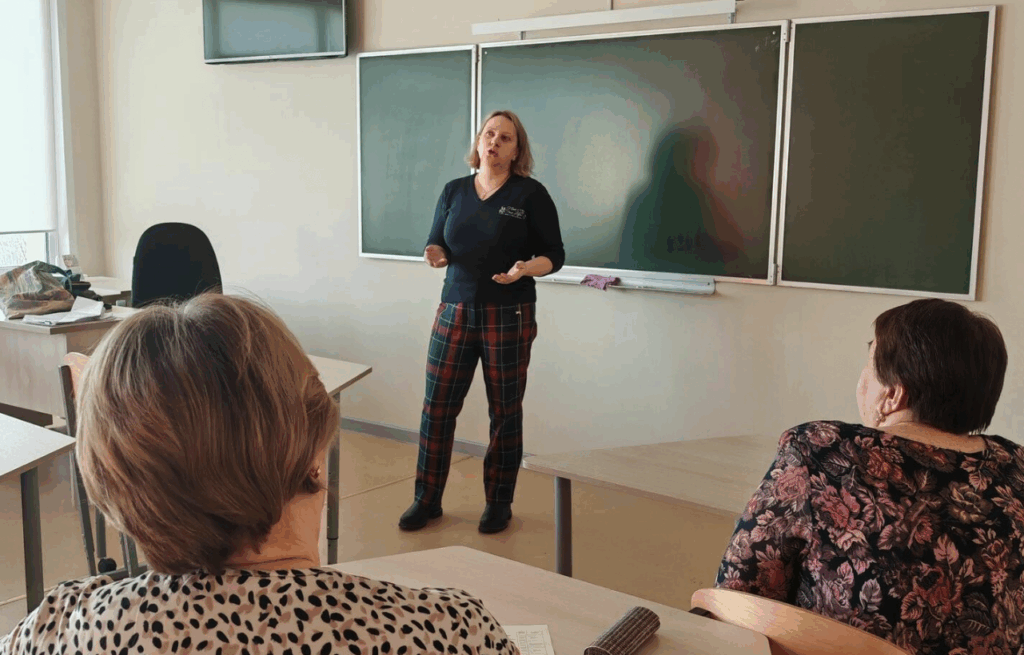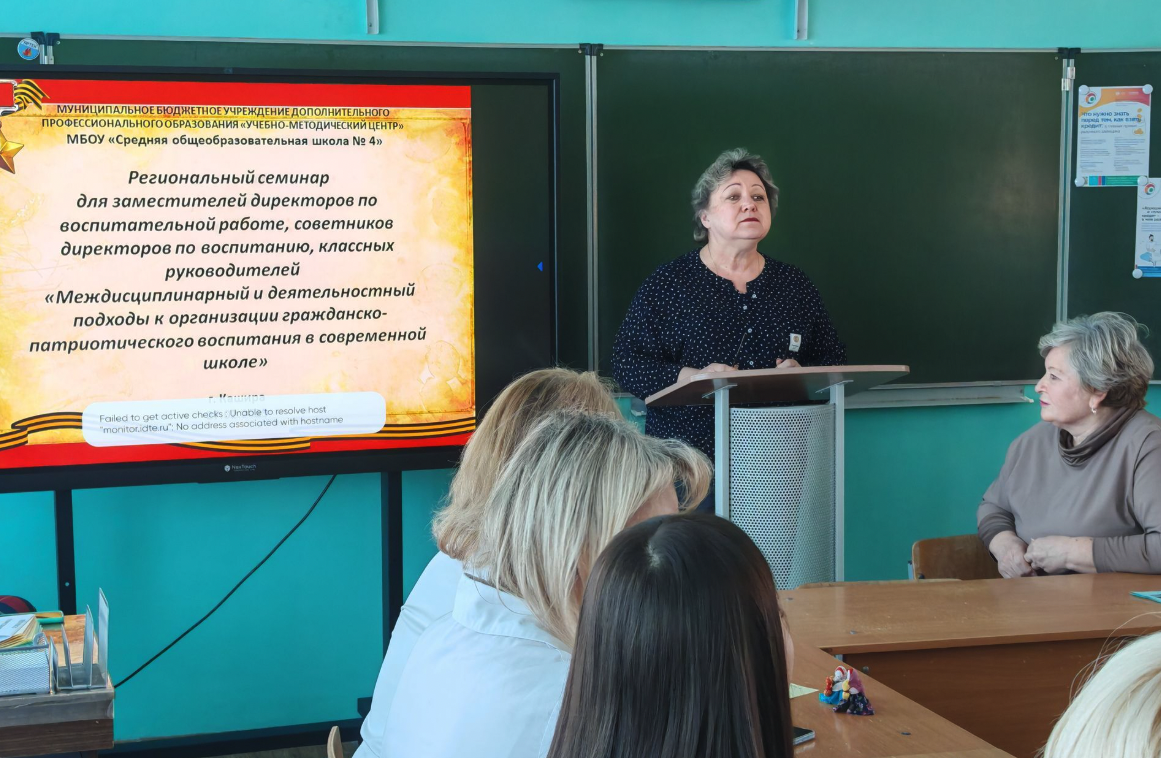Patriotism is a social quality of personality that is formed in a person through upbringing in the family and at school. The forms and methods of cultivating this essential aspect of personal development were the focus of the regional seminar “Interdisciplinary and Activity-Based Approaches to Organizing Civic and Patriotic Education in the Modern School,” held on February 27, 2025, at Secondary School No. 4.
The seminar was opened by the school principal, Natalia Nikolaevna Semigina, who spoke about the school’s history and key results in teaching and educational work. The importance of civic and patriotic education, its structure and content, as well as methods for shaping citizens and patriots, were the subject of a presentation by Deputy Principal for Educational Work, Elena Vyacheslavovna Kuznetsova. She also presented a photo gallery of events held at the school in this area. Deputy Principal for Safety, Irina Sergeevna Znamenskaya, reported on the activities and achievements of the school’s “Bastion” Yunarmiya squad. One of the centers of civic and patriotic education at School No. 4 is the Museum of Military Glory “The Great Battle of Moscow.” The museum’s director, Irina Anatolyevna Davydova, emphasized that although the museum has now celebrated its 50th anniversary, students still continue research and archival work, expanding collections and opening new exhibitions.
For three years, the school has been cooperating with the Center for Interdisciplinary Research on Contemporary Childhood at Moscow State University of Psychology & Education (MSUPE), under whose auspices the federal project “Developing a Technology for Overcoming the Risks of Adolescence: School Theatre Based on Role Experimentation” was implemented in 2024. The students who took part in the project chose as their theme the life of Soviet people during the Great Patriotic War, basing their work on family recollections of the difficult wartime years. The school’s social pedagogue, Elizaveta Alexandrovna Ovchinnikova, presented the main stages and features of the project.

The seminar then continued in four thematic sections. Primary school teacher Svetlana Stepanovna Rakovchena demonstrated a lesson within the system of civic and patriotic education, showing new approaches to teaching and upbringing of younger pupils. Researcher Tatiana Anatolyevna Poskakalova from the Center for Interdisciplinary Research on Contemporary Childhood (MSUPE) conducted a master class “Role Experimentation as a Way of Forming Active Citizenship,” presenting methodological and training practices used in implementing socially significant and creative projects.
Guests of the school museum attended the costumed guided tour “Dedicated to Soldiers of Mercy,” conducted by 9th-grade students. Museum director Irina Anatolyevna Davydova, together with members of the student museum council, provided an overview of the main exhibitions. Participants also visited the creative workshop “A Part of the Soul in Every Craft,” where they learned about the school’s activities supporting participants in the Special Military Operation and, under the guidance of teacher Olga Sergeevna Donskikh, created traditional travel dolls-charms. At the end of the seminar, these dolls were given to participants as a keepsake.
In the concluding part of the seminar, participants watched a video of the play “Thank You, Our Loved Ones!” — the central outcome of the federal project “Developing a Technology for Overcoming the Risks of Adolescence: School Theatre Based on Role Experimentation.” The performance was based on real wartime stories of students’ relatives, as well as poems and songs about the war.
The seminar’s results were summarized by Irina Evgenyevna Vlasova, Deputy Director for Educational and Methodological Work at the Training and Methodological Center, who emphasized the crucial importance of educational activities in schools. She praised the civic and patriotic education system at Secondary School No. 4 and wished the participants creative and professional success in raising the younger generation.
Source — Secondary School No. 4


